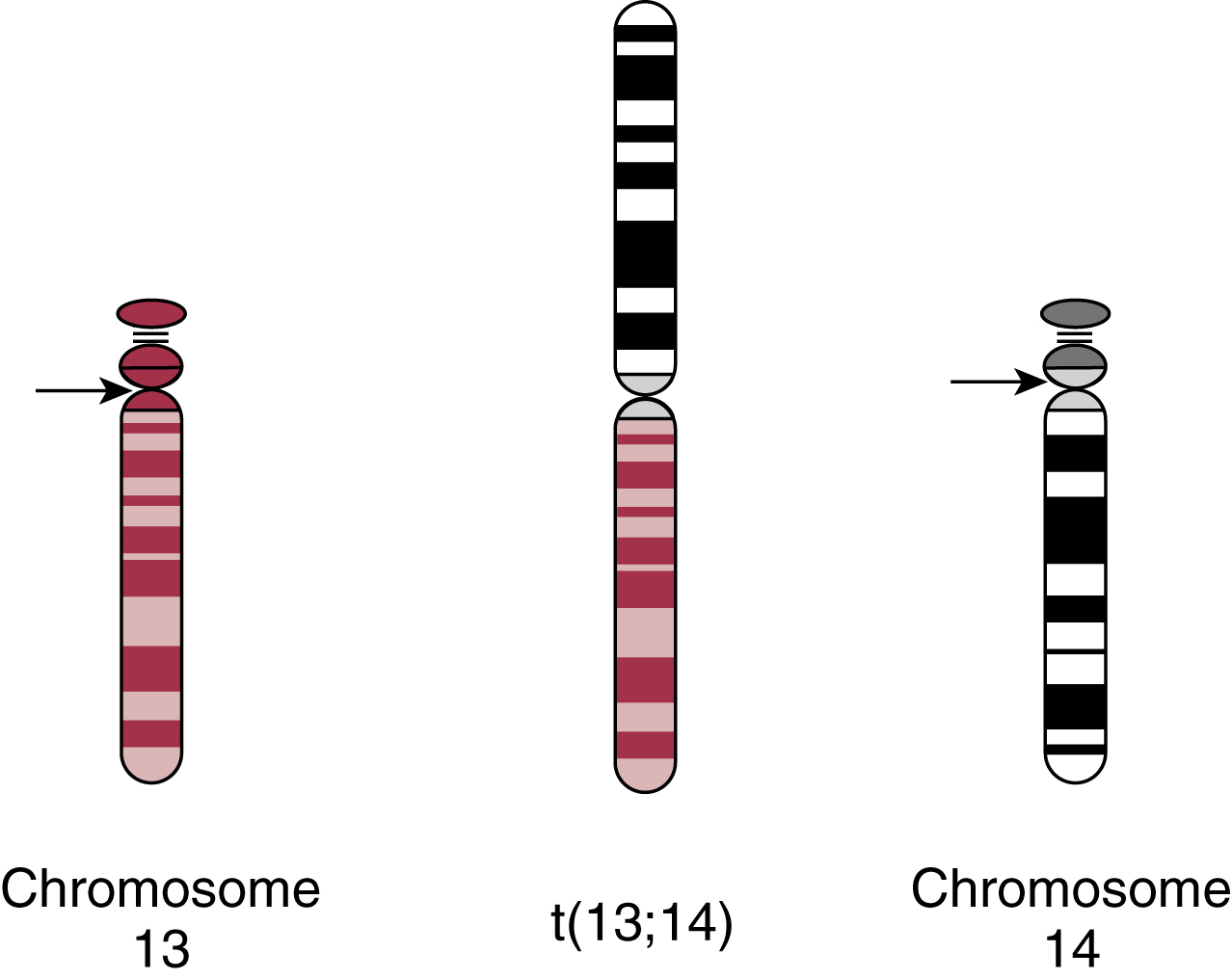robertsonian translocation /rob′ərtsō″nē·ən/ [William R.B. Robertson, 1881–1941, American biologist] , the exchange of entire chromosome arms, with the break occurring at the centromere, usually between two nonhomologous acrocentric chromosomes. It produces one large, metacentric chromosome and one extremely small chromosome. The latter carries little genetic material and may be lost through successive cell divisions, leading to a reduction in total chromosome number. Compare balanced translocation, reciprocal translocation.

